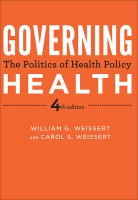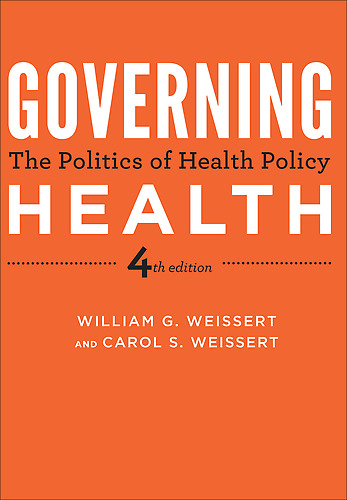 Authors: William G. Weissert and Carol S. Weissert
Authors: William G. Weissert and Carol S. Weissert
Publisher: Johns Hopkins University Press – 397 pages
Book Review by: Sonu Chandiram
There is still a lot of ignorance, uncertainty, fear and other mixed feelings in people about Obamacare, just based on random discussions I have had with them at social events.
Obamacare, if you recall, almost did not make it to law. There was a lot of acrimonious debate on it in Congress between Democrats and Republicans. But with Democrats having the political upper hand, the bill did become law even as we heard on news shows the results of various polls showing some two-thirds of the respondents opposed it.
A news item by Guy Benson dated April 30, 2013 on www.townhall.com goes like this:
“Obamacare’s popularity has plunged steadily since November, according to monthly polling … by the Kaiser Family Foundation. … statistically tied with its lowest level of support since it passed in March 2010. … The poll … found that just 35 percent of Americans view Obamacare ‘very’ or ‘somewhat’ favorably, down 8 points since Election Day. Only once since the law passed has support run lower … 34 percent … in October 2011.”
This news item states Democrats are worried about their chances of election or reelection because of the bad news hidden in Obamacare that will gradually come out as different provisions of this law take effect.
Click on the link below to watch this video on the Kudlow Report about a month ago on April 29 on CNBC with three commentators:
It is no surprise that with healthcare being one of the most important (and costly) issues facing everyone, about two-thirds of this book (230 of 345 pages, not counting the References and Index sections) is devoted to the roles that public sector entities play in shaping United States’ health policy.
Those entities are: Congress, the Presidency, interest groups, the Federal government bureaucracy, and state governments. That is the coverage of Part I of this book entitled Health Policy and Institutions, with one chapter devoted to each of those five entities.
Part II – Health and the Policy Process – deals with the Policy Process and the Problem to Policy, the titles of the sixth and seventh chapter, respectively.
Extensive reviews of policies that have governed health care since Lyndon Johnson’s administration are presented here.
The authors point out that while the Obama health reform package seeks to improve the health care situation in the U.S. by, among other things, providing care to many that were previously uninsured, by imposing mandates on employers and penalties on consumers, by instituting reforms in the health insurance industry with protection of consumers, it fails by a single all-important count: controlling health care cost inflation.
Many issues discussed throughout the book are summarized in the Conclusion of this book. The authors basically project an optimistic outlook of the future; that somehow workable solutions will eventually be found to every problem. They also express confidence in arriving at compromises in the most important but also most difficult conflict in U.S. healthcare today: the very high (and constantly rising) cost of health care versus the demand for an affordable range of healthcare services.
The authors point out at the large number of players with conflicting interests in the healthcare business that makes arriving at fair solutions for all, an enormous ordeal. Consider that each of these sets of players has different motives and objectives: care givers (mainly doctors and nurses), health insurance firms, hospital administrators and staff, drug companies, and not to forget, the directors of government programs such as Medicare and Medicaid.
Also take into account many other types of organizations and individuals not named here that form part of the multi-trillion-dollar segment of the U.S. economy that constitutes one-sixth of this country’s gross domestic product.
Much new information and a wealth of insight are provided in this valuable book by William and Carol Weissert.
William G. Weissert is a professor of political science at Florida State University and a professor emeritus at University of Michigan School of Public Health.
Carol S. Weissert is the LeRoy Collins Eminent Scholar and a professor of political science at Florida State University.






